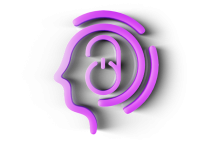From September, Georgian Pupils will learn the Basics of Computer Programming through “Hello Ruby”
From September this year, Georgian primary school pupils will learn the basics of programming and computer science through “Hello Ruby” – a successful series of books that has already been adopted by 25 countries. Finnish programmer and author of the “Hello Ruby” books Linda Liukas held a joint press-conference with representatives from the Georgian National Communications Commission and the Ministry of Education today.
The 33-year-old Linda Liukas was named among the top 50 women in the technology sector by the Forbes magazine in 2018, and has been described as the Finnish digital champion by the European Commission. She accepted GNCC’s invitation to visit Georgia, where today she held a certified seminar and workshop for 60 teachers and trainers on the subject of devising a lesson plan for teaching with “Hello Ruby.”
The “Hello Ruby” books Adventures in Coding and Journey inside the Computer have been translated and published in 25 languages, including English, German, French, Italian, Estonian, Japanese, and now Georgian. The books are highly popular across the world. Primary school pupils in New York are currently learning the basics of programming through “Hello Ruby.”
The Communications Commission obtained the publishing rights in Georgian language from the author herself. “Hello Ruby” is a series of books that are used by primary school children to learn the basics of computer sciences, as well as critical assessment and analysis skills.
As part of the reforms implemented by the Georgian Ministry of Education, 3rd and 4th grade pupils in 3 selected public schools and 2 private schools will start learning the basics of programming through “Hello Ruby” in September. These are public schools #2 in Sagarejo, #4 in Rustavi and #71 in Tbilisi, as well as the Buckswood International School and XXI School in Tbilisi.
During the course of 2019, the Commission and the Ministry of Education will jointly implement five media literacy projects for children, involving parents and teachers.
The aforementioned projects have been selected based on the analysis of successful practices from EU countries, assessment of their effectiveness and the potential for their implementation in Georgia. They will help youngsters develop vital skills such as:
- The basics of computer science;
- Evaluating and analysing online content;
- Identifying false information (fake news, propaganda, harmful information);
- Critically analysing the source of information and establishing the author’s possible motivation;
- Effective and safe participation in the digital and creative economy.










